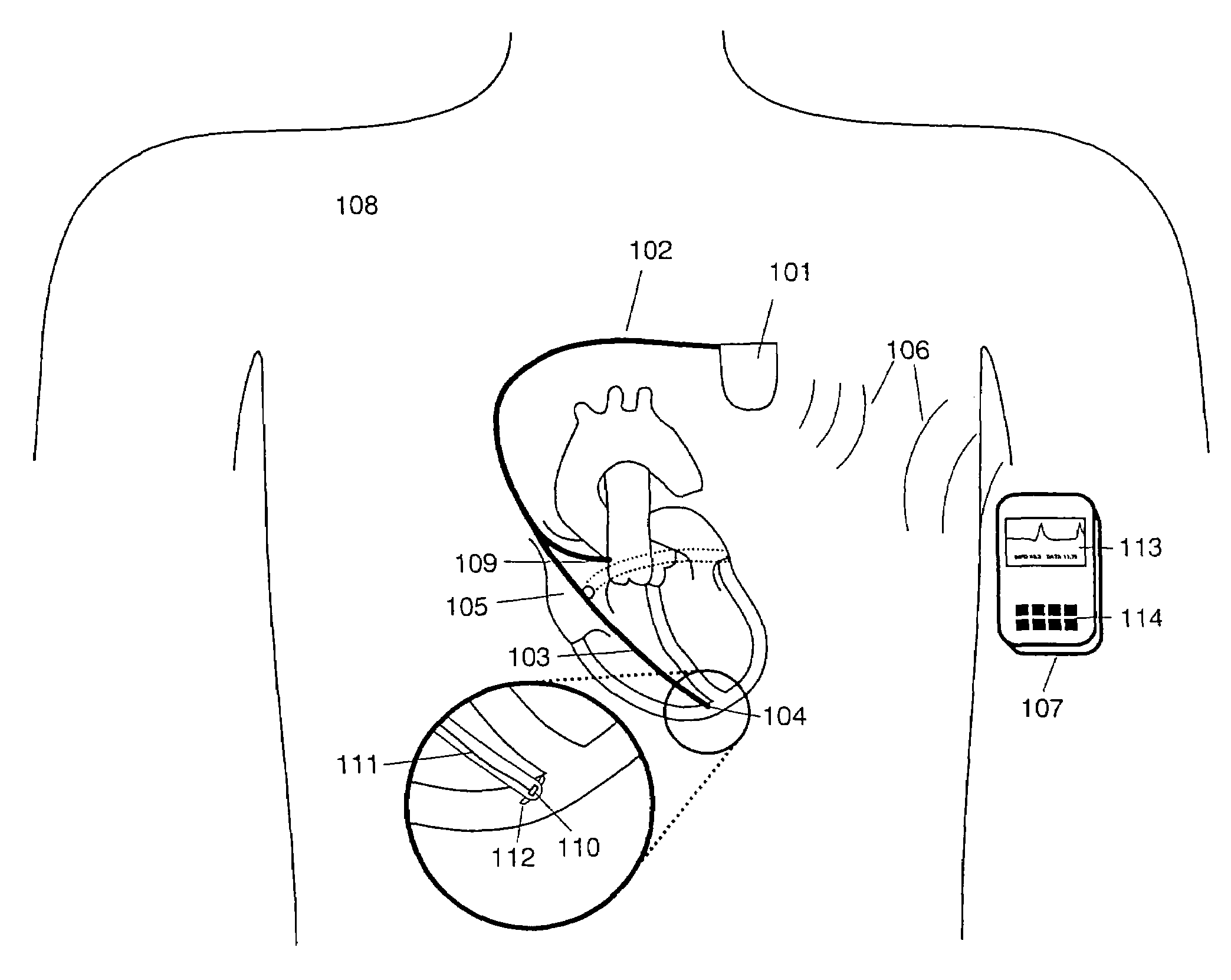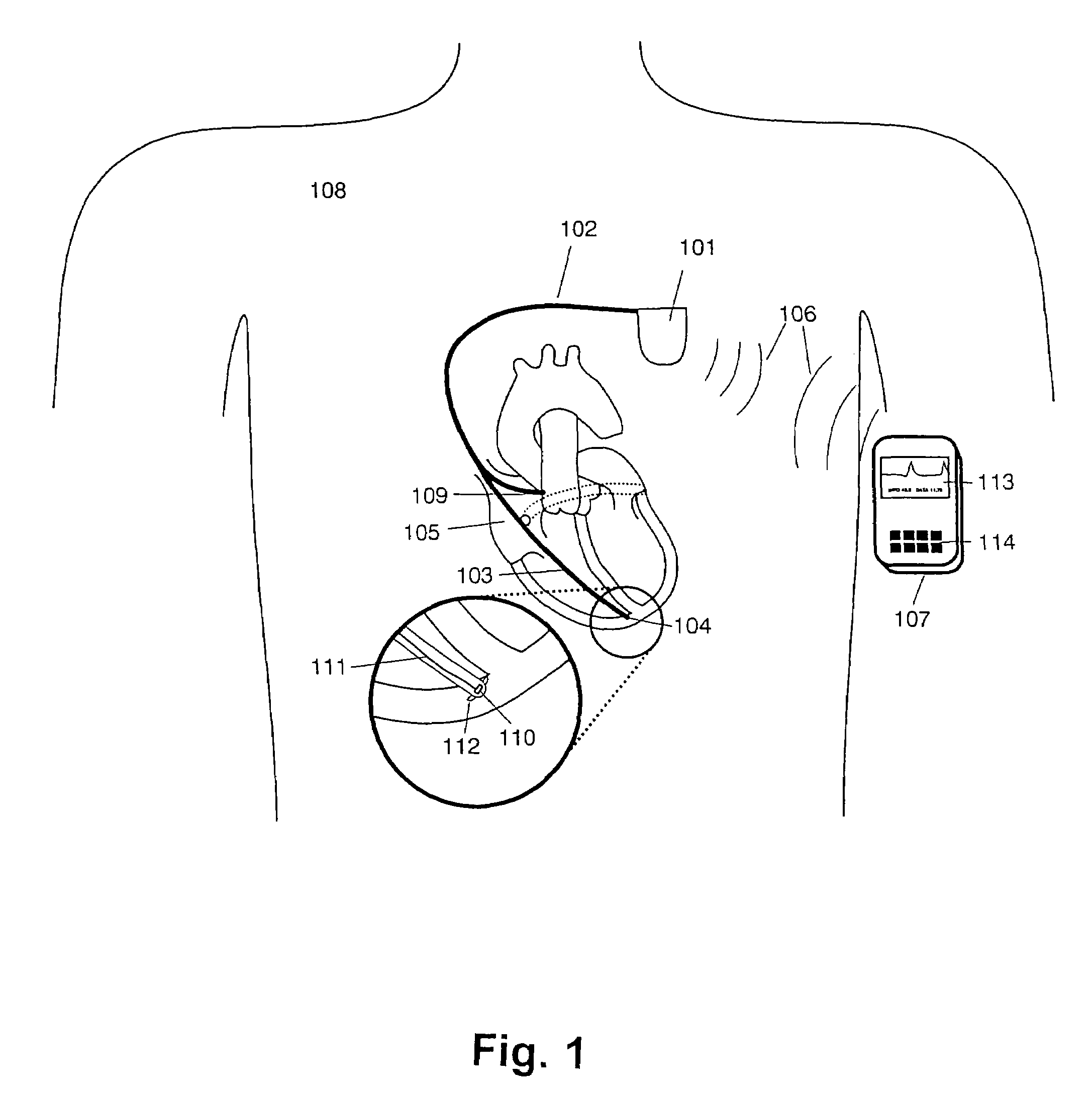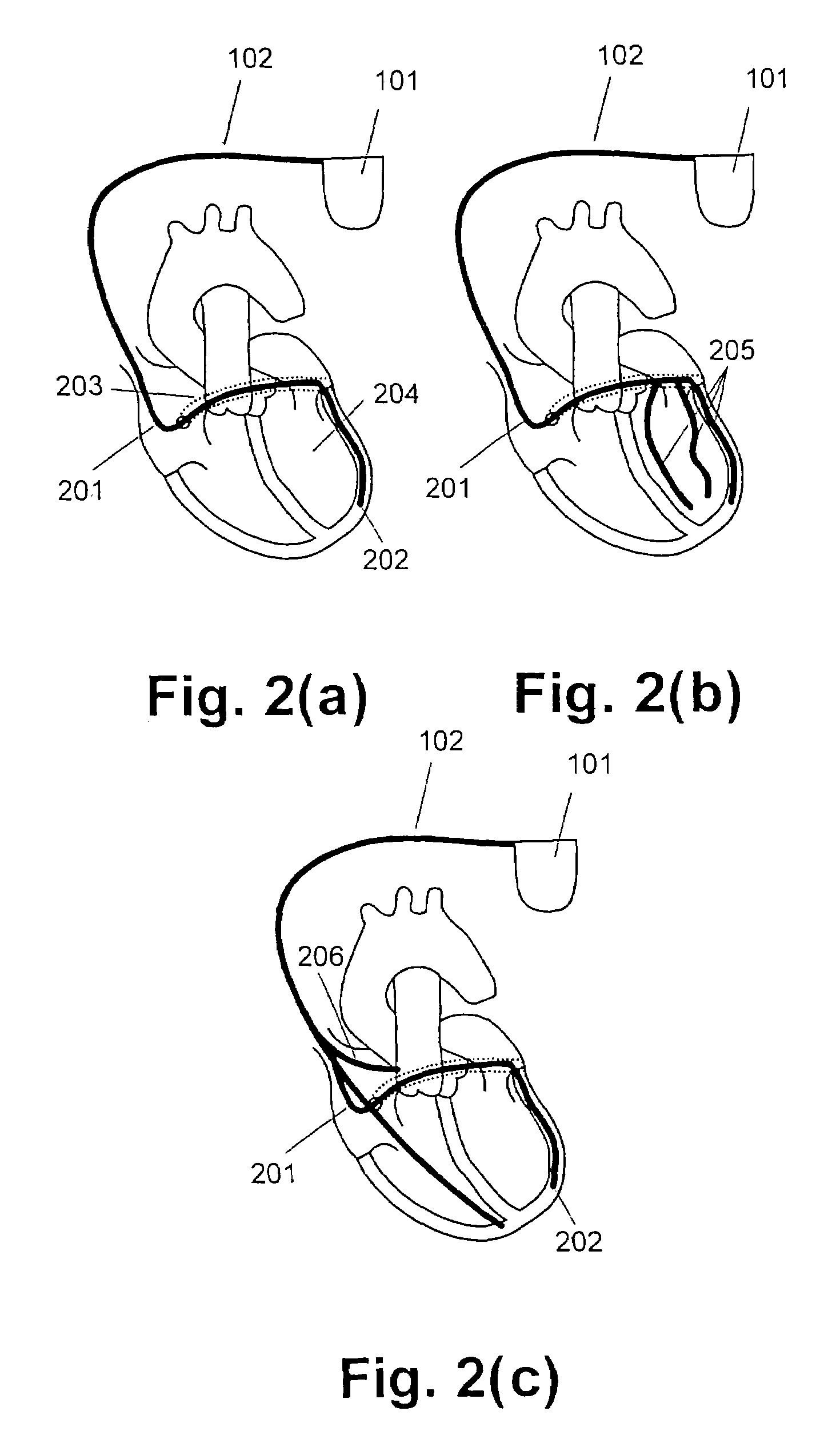Detection of apex motion for monitoring cardiac dysfunction
a technology of cardiac dysfunction and apex motion, which is applied in the field of cardiac dysfunction, can solve the problems of various heart rhythm abnormalities, arrhythmias, and cardiac muscle death, and achieve the effect of sensitive, immediate and accura
- Summary
- Abstract
- Description
- Claims
- Application Information
AI Technical Summary
Benefits of technology
Problems solved by technology
Method used
Image
Examples
Embodiment Construction
[0043]Devices and methods are provided for monitoring of heart function, which devices comprise a sensor for the determination of the motion of the heart at the ventricular apex, particularly the direction of motion. The direction of apical movement provides a sensitive, immediate and accurate indicator for cardiac dysfunction. Specifically, the 6-degree-of-freedom path that the ventricular apex traverses over time changes abruptly and significantly under acute ischemia, and the characteristics of that change can be assessed in order to deduce that an ischemic event has occurred, and which coronary artery was likely to be responsible for the ischemia. Apical motion can also be analyzed to assess heart rate, detect the presence of arrhythmias, detect pacing signal capture, volume overload, or other signs of heart dysfunction. The information contained in the motion of the apex can be combined with information from one or more EKG electrodes or pressure transducers (or any of the othe...
PUM
 Login to View More
Login to View More Abstract
Description
Claims
Application Information
 Login to View More
Login to View More - R&D
- Intellectual Property
- Life Sciences
- Materials
- Tech Scout
- Unparalleled Data Quality
- Higher Quality Content
- 60% Fewer Hallucinations
Browse by: Latest US Patents, China's latest patents, Technical Efficacy Thesaurus, Application Domain, Technology Topic, Popular Technical Reports.
© 2025 PatSnap. All rights reserved.Legal|Privacy policy|Modern Slavery Act Transparency Statement|Sitemap|About US| Contact US: help@patsnap.com



